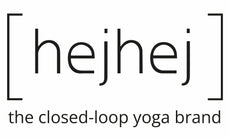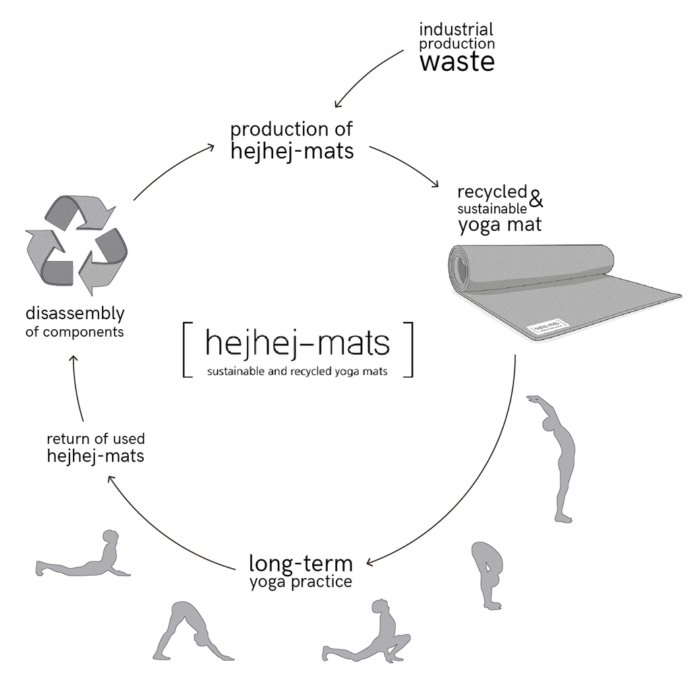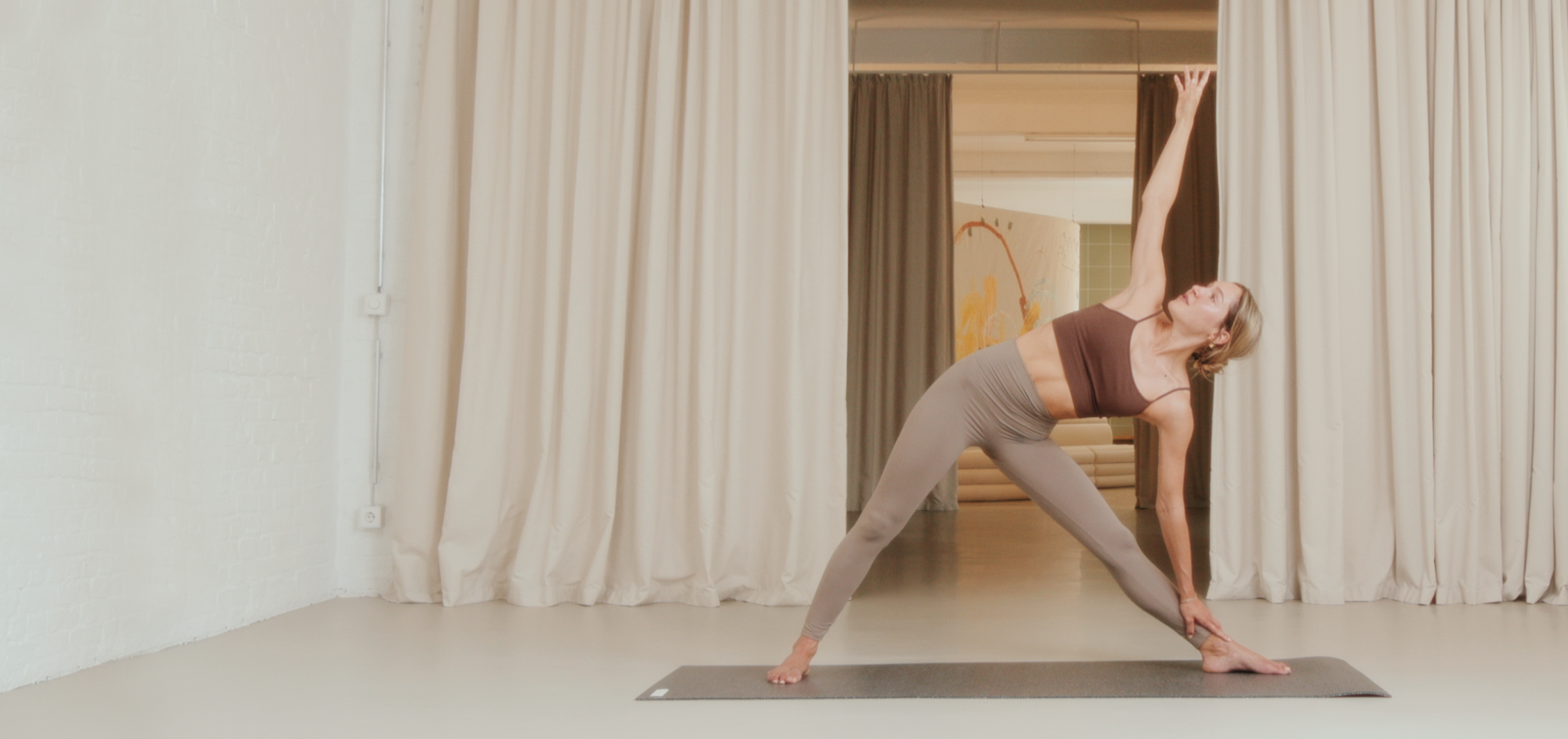Sustainability is an integral part of our everyday lives. In our Master of Leadership for Sustainability in Sweden, we met a lot of inspiring people that all helped us foster our understanding of sustainability.
We feel that Brundtland’s definition describes this term best. “Sustainable development is development that meets the need of the present without compromising the ability of future generations to meet their own need”. For some of you, this is already known and part of your life. For some, this might sound pretty new. We want to emphasize that this definition addresses all of you, regardless of your sustainable background or level of knowledge. We all started at one point – and now we started with hejhej-mats. We would like to take you on our journey to a closed-loop yoga mat and share some exciting insights with you. Why we started hejhej-mats and why did we put so many resources and all our motivation into this sustainable project? We have also briefly written down our story for you on the page the story. Our long-term goal is not only to bring a sustainable yoga mat to the market but also to become THE sustainable yoga brand.
***Update 2022: It’s so nice to look back on such lines from the past. So much has happened in the meantime and we have been able to achieve so many goals and grow towards them. We have a great team and the products have also grown steadily. We now have a real little closed-loop hejhej family of 8 yoga products. You can find out what sustainability means to us and how we implement it in our start-up on the sustainability page.
“Because we have the privilege to know, we have the duty to act.”
We believe this quote from Albert Einstein is true. The more you deal with the issue of sustainability, the more you know how bad the state of our planet is. The more you feel compelled to act. Every single lecture in our studies, every informative article and every conversation about sustainability has strengthened our urge to really make a difference. We believe that the current wasteful consumption patterns need to be changed in order to protect our environment and also our society. The UN set up sustainable development goals as part of a new development plan. A more responsible production and consumption is part of it. These sustainable development goals include everyone and motivate all of us to reach a more sustainable development together. We have the power to make changes in our daily lives as citizens, consumers, neighbours, friends, employees… As the founders of hejhej-mats, we are confident that we also have the power to change something on the other side of the economy – the production side.
The three dimensions of sustainability
In our sustainable start-up, we want to combine all three dimensions of sustainability: the economic, the ecological and the social. We see the problem of waste as a tremendous problem for society since health and daily life is influenced negatively. Also, we believe it is an environmental problem as ecological systems are destroyed and contaminated. Whole ecosystems vanish because of the waste we create. Every year, more than 10 million tons of waste end up in the oceans. About 75 per cent of the 10 million tons is plastic waste. A huge range of products is plastic, for instance, yoga mats. Planetary boundaries have already been exceeded. Hence, we conclude that we already have enough resources on the planet and we do not have to take new ones, even if they are natural. So we are not going to take new resources from the planet for the production of hejhej-mats. That means that hejhej-mats does not use virgin materials but waste as a resource for creating new products.
In our vision, the future is circular.
The concept of the circular economy makes use of waste as a resource, without producing any new waste for the planet. Therefore, this concept of the circular economy allows the most sustainable way of production. We are contributing to a circular economy where materials can flow in close- looped and continuous cycles. Nature will be treated as a stakeholder of us as it profits the sustainable development of our planet. As sustainable entrepreneurs, we have the possibility to decide ourselves which stakeholders we rank as most important. Hence, being self-employed for us means making decisions according to sustainability and not according to any corporate rules. The ability to establish a business align with the planet’s ecosystems motivates enormously.
On our blog / journal, we will keep you updated about the circular economy, sustainable innovations and personal experiences of the development of hejhej-mats. We will fill this blog with our inspiration and hope to inspire you to act as well. We will put all our motivation into hejhej-mats and maybe we will motivate some of you to be more sustainable.



